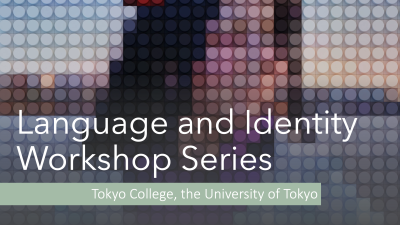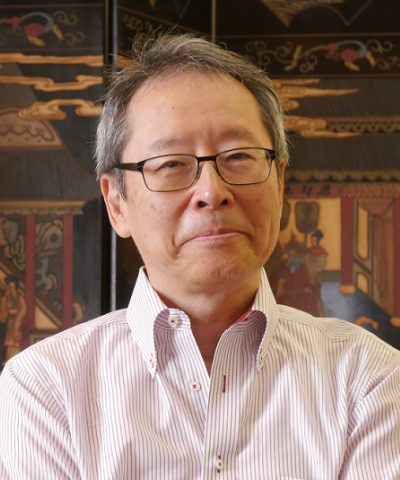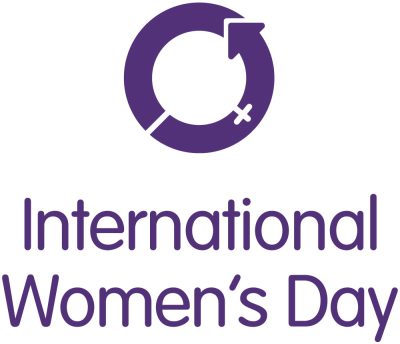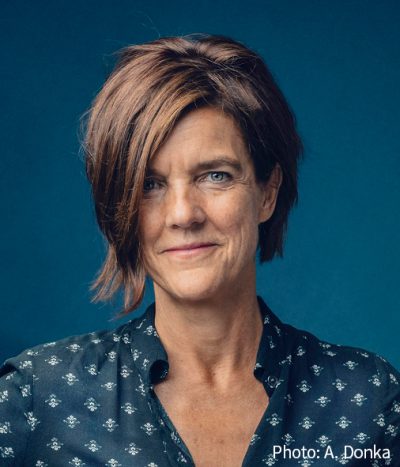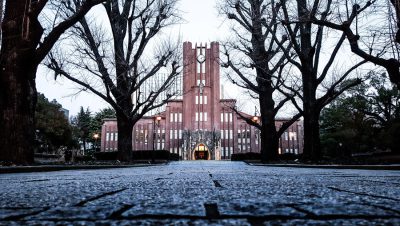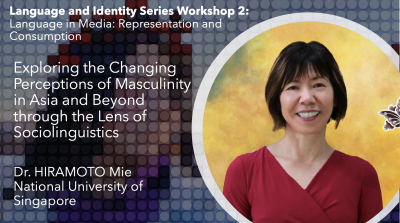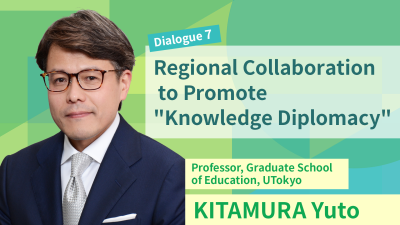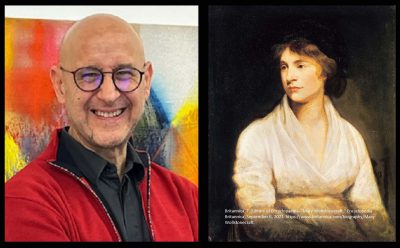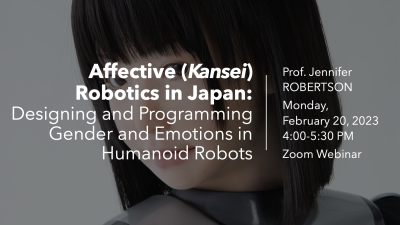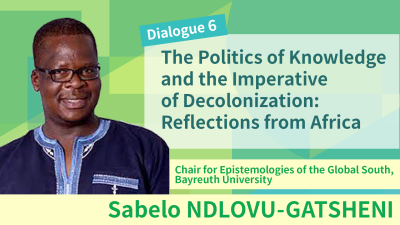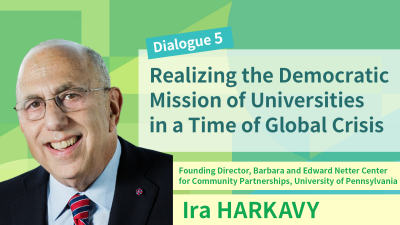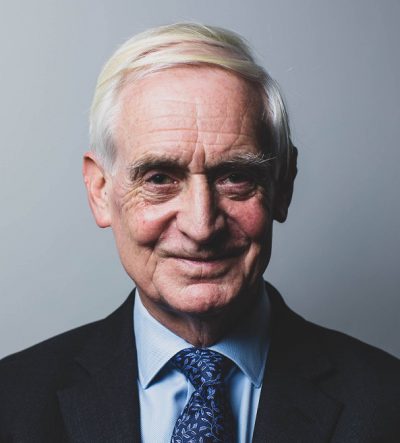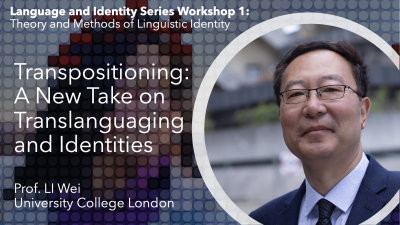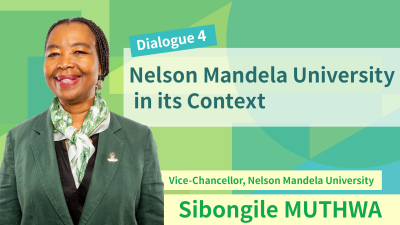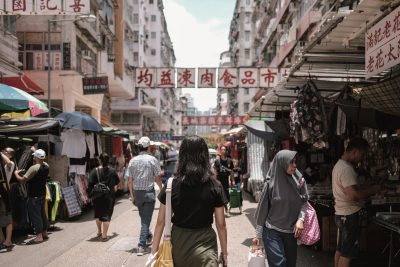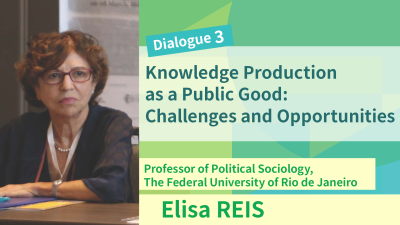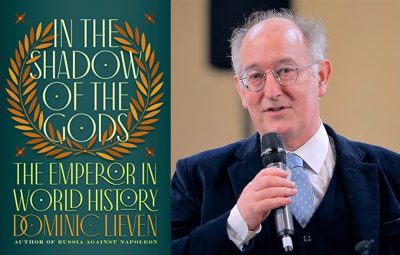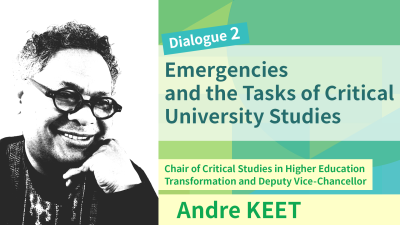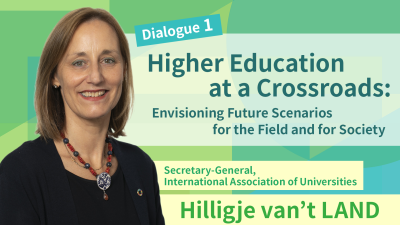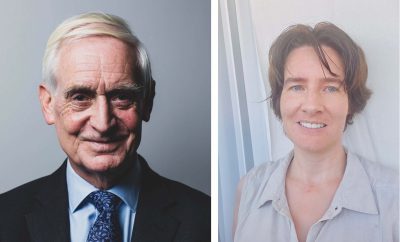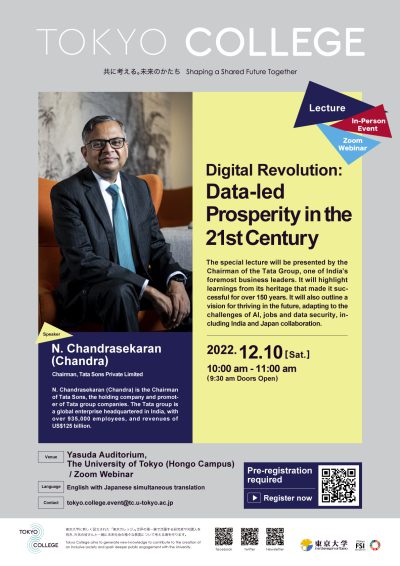Language and Identity Workshop III. Language and Identity in the Classroom: Policy and Education
イベント予定ワークショップ/WorkshopMonday, 17 April 2023, 2:30-4:00 PM
In this workshop, we will discuss how the question of identity is reflected in education and language policy, through the process of standardization of the national language, as well as the teaching and treatment of the foreign, national, regional languages.
Animals, Disasters, and Mountains: Rethinking Environmental Humanities (Prof. Haruo SHIRANE )
イベント予定講演会/LectureTuesday, 4 April 2023, 4:00-5:30 pm
What is the relationship of humans to animals and to mountains in Japanese culture? To natural disasters? How can these complex relationships help us generate an environmental ethics relevant to the present? Shirane proposes an “ecology of disaster, afterlives, and rebirth” as a means to rethink the relationship of the human to the non-human.
International Women’s Day Symposium “Understanding Feminist Movements Across Borders: Building Transnational Solidarity”
イベント予定シンポジウム/SymposiumFriday, 31 March 2023, 10:00-11:30 am
In honor of International Women’s Day, Tokyo College’s “Gender, Sexuality & Identity” collaborative research group will host a panel that will explore the role of translation in practices of transnational feminist solidarity. Panelists will discuss the recent protests in Iran for “Woman, Life, Freedom” as a case study for contemplating how women led movements may be translated into different contexts to facilitate multi-directional relationships of learning and solidarity.
“Chromosome Function and Maintenance – Propagating Life” (Prof. Camilla BJÖRKEGREN)
イベント予定講演会/LectureFriday, 10 March 2023, 4:00-5:30 pm
Prof. Björkegren’s research focuses on the helical nature of DNA. The lecture will give a background to this analysis, presenting the structure and function of chromosomal DNA and how these features influence cellular growth. This will set the stage for a final discussion on how and if the organization of the hereditary material into a double stranded helix shapes the identity and development of our cells.
Discussion Forum “The Future of Higher Education”
イベント予定パネルディスカッション/Panel discussionWednesday, 8 March 2023, 5:00 pm - 6:30 pm JST
Challenges that both concern and span the globe, such as those indicated by the SDGs, are drawing increasing attention, and the problems resulting from pandemics and economic turmoil have grown more significant. Many of these challenges become apparent as they come in contact with issues at the local and regional level. Rather than attempting to solve individual challenges, however, more fundamental, forward-thinking social transformations are required. In this discussion forum, we explore what social responsibilities universities should fulfill in these circumstances with a special focus on the impact on knowledge production. The forum will also summarize the contents of “The Future of Higher Education” dialogue series held by Tokyo College over seven sessions from December 2022 to March 2023.
Exploring the Changing Perceptions of Masculinity in Asia and Beyond through the Lens of Sociolinguistics (ft. Dr. HIRAMOTO Mie)
イベント予定ワークショップ/Workshop講演会/LectureWednesday, 1 March 2023, 15:00-16:00
In this presentation, Dr. HIRAMOTO Mie explores the changing ideas of masculinity in Asia and beyond through the lens of sociolinguistics. She focuses on the relationships between sociocultural stereotypes and masculinity ideologies, as well as the ways in which genre, style, and medium shape our understanding of these concepts. Drawing mainly on Agha’s works, the theoretical concepts of mediatization and enregisterment, as well as figures of personhood, will be employed in the analysis of three case studies.
Language and Identity Workshop II. Language in Media: Representation and Consumption
イベント予定ワークショップ/WorkshopWednesday, 1 March 2023, 16:00-17:30
In this workshop, we discuss the role of media in manifesting, representing, and reifying identities, and what role language plays in this relationship. We explore the role of genre, imagined audience, and media creator in language use, and what implications media consumption has for our own perceptions of identity and belonging.
“The Future of Higher Education” #7 Regional Collaboration to Promote “Knowledge Diplomacy”
イベント予定対話/DialogueWednesday, 1 March 2023, 10:00 am - 11:00 am
Higher education around the world is experiencing vast changes in its multiple environments as a result of numerous factors, including globalization, shifts in the boundary conditions of truth, the effects of technology, geopolitical uncertainties, and calls for ‘decolonisation’. This seminar series explores the impact of these factors on the future of higher education.
Mary Wollstonecraft: An English Woman Observing and Writing the History of the French Revolution (Prof. Pierre SERNA)
イベント予定講演会/LectureMonday, 27 February 2023, 4:00-5:30 pm
The general public is more familiar with Mary Wollstonecraft’s daughter Mary Shelley, who imagined Frankenstein as a monstrous metaphor of modernity. Historians are also aware that Mary Wollstonecraft died giving birth to Mary Shelley.
However, among scholars, the two texts of Mary Wollstonecraft, Vindication of the Rights of Men as a response to Edmund Burke and A Vindication of the Rights of Woman, are of foremost importance. In this lecture, Prof. Serna will introduce another less-known and long-depreciated text titled An Historical and Moral View of the French Revolution; and the Effect it Has Produced in Europe. He intends to show that it is one of the first great histories of the French Revolution, proposing a new narrative and a new historiographic epistemology.
Affective (Kansei) Robotics in Japan: Designing and Programming Gender and Emotions in Humanoid Robots (ft. Prof. Jennifer ROBERTSON)
イベント予定講演会/LectureMonday, 20 February 2023, 4:00-5:30 PM
A number of humanoid robots in Japan have been supplied with gender and emotions, qualities that are stereotyped and greatly simplified in order to create algorithms. Artificial intelligence (AI), which is comprised of numerous algorithms, is useful for tasks that rely on pattern recognition, but AI can also perpetuate and reproduce the everyday social biases of their human designers. In this presentation, Prof. Jennifer Robertson discusses these robots and the implications that their design has for other industries, including surveillance.
“The Future of Higher Education” #6 The Politics of Knowledge and the Imperative of Decolonization: Reflections from Africa
イベント予定対話/DialogueWednesday, 15 February 2023, 3:00-4:00 pm
Higher education around the world is experiencing vast changes in its multiple environments as a result of numerous factors, including globalization, shifts in the boundary conditions of truth, the effects of technology, geopolitical uncertainties, and calls for ‘decolonisation’. This seminar series explores the impact of these factors on the future of higher education.
Life Support: Youth, Life and Viability in Rural North India (Lecture and film screening)
イベント予定講演会/LectureWednesday, 8 February 2023, 4:00-5:30pm
Professor Craig Jeffrey and Associate Professor Jane Dyson will show how young people in rural Uttarakhand, north India, attempt to make viable lives as they respond to environmental and socio-economic crises and engage in everyday social action. They will also screen Professor Dyson’s documentary film Spirit, which explores related themes.
“The Future of Higher Education” #5 Realizing the Democratic Mission of Universities in a Time of Global Crisis
イベント予定対話/DialogueWednesday, 8 February 2023, 10:00-11:00 am
Higher education around the world is experiencing vast changes in its multiple environments as a result of numerous factors, including globalization, shifts in the boundary conditions of truth, the effects of technology, geopolitical uncertainties, and calls for ‘decolonisation’. This seminar series explores the impact of these factors on the future of higher education.
The UK’s Indo-Pacific Tilt: What Changed in 2022? (Lecture by Prof. Alastair MORGAN)
イベント予定講演会/LectureFriday, 3 February 2023, 4:00-5:30 pm
In 2021, the British Government announced and put in train a ‘tilt to the Indo-Pacific’ in defence, security, development and foreign policy. How has this fared in 2022, in the face of developments including political turmoil and economic difficulties in the UK, and the consequences of Russia’s invasion of Ukraine?
Language and Identity Workshop I: Theory and Methods of Linguistic Identity
イベント予定ワークショップ/WorkshopFebruary 2, 2023 18:30-19:30 JST
In this workshop, we are aiming to present up-to-date approaches to linguistic identity and multilingualism. Focusing on linguistic identity as emerged through various forms of natural speech, we will discuss how transnationalism, migration, pandemic, and digital communication affect linguistic identities.
Transpositioning: A New Take on Translanguaging and Identities (ft. Prof. LI Wei)
イベント予定ワークショップ/Workshop講演会/LectureThursday, 2 February 2023, 17:30 - 18:30 JST
This talk extends the concept of translanguaging by looking at transitional mutilinguals’ journey of 'transpositioning,' a process where people break from their pre-set or prescribed roles and switch perspectives with others through communicative practices such as translanguaging and transmodalities.
“The Future of Higher Education” #4 Nelson Mandela University in its Context
イベント予定対話/DialogueWednesday, 1 February 2023, 3:00 pm - 4:00 pm
Higher education around the world is experiencing vast changes in its multiple environments as a result of numerous factors, including globalization, shifts in the boundary conditions of truth, the effects of technology, geopolitical uncertainties, and calls for ‘decolonisation’. This seminar series explores the impact of these factors on the future of higher education.
Symposium ”Asian Cities and the Human-Centered Society”
イベント予定シンポジウム/Symposium共催/Joint EventTuesday, 31 January 2023, 10:00 am - 1:30 pm JST
This symposium discusses the trajectory of human-centered society development in Asia through interdisciplinary and transnational dialogues. To what extent can technology support human-centered approaches to urban living? Does the trajectory for human-centered society development address human interests, values, and well-being, or simply the technology itself? Where are cultural, societal, and heritage values situated within this trajectory?
“The Future of Higher Education” #3 Knowledge Production as a Public Good: Challenges and Opportunities
イベント予定対話/DialogueWednesday, 25 January 2023, 10:00-11:00 am
Higher education around the world is experiencing vast changes in its multiple environments as a result of numerous factors, including globalization, shifts in the boundary conditions of truth, the effects of technology, geopolitical uncertainties, and calls for ‘decolonisation’. This seminar series explores the impact of these factors on the future of higher education.
Leadership, Hereditary Monarchy and Ruling Empires: The Place of the Emperor in World History (Lecture by Prof. Dominic LIEVEN)
イベント予定講演会/LectureTuesday, 24 January 2023, 4:00-5:30 pm
This lecture - and the book, In the Shadow of the God: The Emperor in World History, on which it is based - looks at emperors and emperorship across five millennia and most of the world.
“The Future of Higher Education” #2 Emergencies and the Tasks of Critical University Studies
イベント予定対話/DialogueWednesday, 18 January 2023, 2:00-3:00 pm
Higher education around the world is experiencing vast changes in its multiple environments as a result of numerous factors, including globalization, shifts in the boundary conditions of truth, the effects of technology, geopolitical uncertainties, and calls for ‘decolonisation’. This seminar series explores the impact of these factors on the future of higher education.
“The Future of Higher Education” #1 Higher Education at a Crossroads: Envisioning Future Scenarios for the Field and for Society
イベント予定対話/DialogueFriday, 16 December 2022, 12:00-1:00 pm
Higher education around the world is experiencing vast changes in its multiple environments as a result of numerous factors, including globalization, shifts in the boundary conditions of truth, the effects of technology, geopolitical uncertainties, and calls for ‘decolonisation’. This seminar series explores the impact of these factors on the future of higher education.
Dialogue with Dictators: The Costs and Benefits of High-Level Diplomacy with North Korea
イベント予定対話/DialogueThursday, 15 December 2022, 4:00-5:30 pm
What can be gained from holding high-level summits with a “rogue state” like North Korea? Do those potential gains outweigh the risk of lending prestige and legitimacy to a dictatorial regime? Two speakers will lead a critical discussion of these questions.
Ambassador Alastair Morgan discusses the high-level meetings with the DPRK in 2018-19, and Dr. Meredith Shaw explains how summits are depicted in North Korean domestic propaganda.
Digital Revolution: Data-led Prosperity in the 21st Century
イベント予定講演会/LectureSaturday, 10 December 2022, 10:00-11:00 am (Doors open: 9:30 am)
The special lecture will be presented by the Chairman of the Tata Group, one of India’s foremost business leaders. It will highlight learnings from its heritage that made it successful for over 150 years. It will also outline a vision for thriving in the future, adapting to the challenges of AI, jobs and data security, including India and Japan collaboration.


